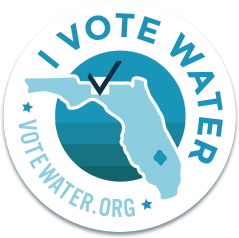Candidate Profile
Supports
Penny Taylor
County Commissioner District 4 - REP

2022 General - Voter Guide Ranking
- Candidate
- Q1
- Q2
- Q3
- Q4
- Q5
- DM
- Rating
Penny Taylor
County Commissioner District 4 - REP
2022 Clean Water Questionnaire Responses
To read each question, answer and candidate comments click below.
- Question 1 : Yes1) The U.S. Army Corps of Engineers is finalizing the new Lake Okeechobee System Operating Manual (LOSOM), and while the plan should reduce harmful discharges to the St. Lucie and Caloosahatchee estuaries, discharges will still occur when the level of the lake gets too high. Do you agree the Army Corps and the South Florida Water Management District must send more water south during the dry season in order to minimize the possibility of discharges and their impact on human health and the environment?
Yes
- Question 2 : Yes2) Florida is booming, with an estimated 1,000 people moving here every day. As a result, development is pushing growth further into Florida’s rural and natural areas, imperiling wildlife and natural resources like clean water. Will you oppose changes to your county’s Comprehensive Plan/Urban Development Boundary that would allow non-agricultural development in rural areas outside the urban, most densely developed area(s) in your county?
Yes
Candidate Comment:
In Collier County, in the early 2000, the Rural Lands Stewardship Area (RLSA) was created doing just that ... I was not on the Board at that time, and since then, development has mushroomed in these areas. Collier County is now addressing how this development should take place. Will sprawl continue or can we implement Smart Growth policies I am working with Big Cypress Basin Chair and SouthFLorida Water District Board Member, Charlette Roman, to offer alternatives to larger developments to create bio-diverse stormwater areas on their developments.
- Question 3 : Yes3) State legislation, FDEP data and the Blue-Green Algae Task Force all report agriculture as the dominant source of phosphorus and nitrogen within most impaired watersheds of Florida. Do you agree industries and property owners should be held to clearly enforceable pollution standards and penalties; including mandatory adoption and verification of best management practices, and to implement inspection programs targeting septic, agriculture and industrial wastewater?
Yes
- Question 4 : Yes4) Key water bodies along the Florida coast, including the Indian River Lagoon and Biscayne Bay, are plagued by excess nutrient pollution which kills seagrass. This in turn has led to increased turbidity and reduced habitat essential for fish, birds, marine mammals, and other marine species. If elected, would you support aggressive measures to address water quality problems, including (but not limited to) a mandatory septic inspection program, increased investment in septic-to-sewer conversions and upgrades to municipal sewage treatment facilities, increased stormwater pollution controls and tougher fertilizer restrictions coupled with strict enforcement?
Yes
Candidate Comment:
I sat on the Florida Association of Counties Water Committee, and have worked regionally on the LOSOM review and implementation. I support a vigorous septic to sewer conversion throughout Collier, but especially in the denser, more urban areas. I was a strong advocate of a stormwater fee on properties throughout Collier giving us a recurring funding source to upgrade our storm water systems. (It failed.)
- Question 5 : Yes5) Special interests in Florida spend lavishly to influence elections at the local, state and federal level. The sugar industry, phosphate mining industry and big utilities, among others, spend millions to aid candidates who then back their preferred legislation - too often, at the expense of clean water. Do you agree your campaign will accept no contributions from any source with ties to polluting industries including, but not limited to, the sugar, phosphate and utility industries?
Yes


Candidate Comment:
This should be a policy statement for the management of Lake Okeechobee. A guiding principal in the management of Lake Okeechobee.